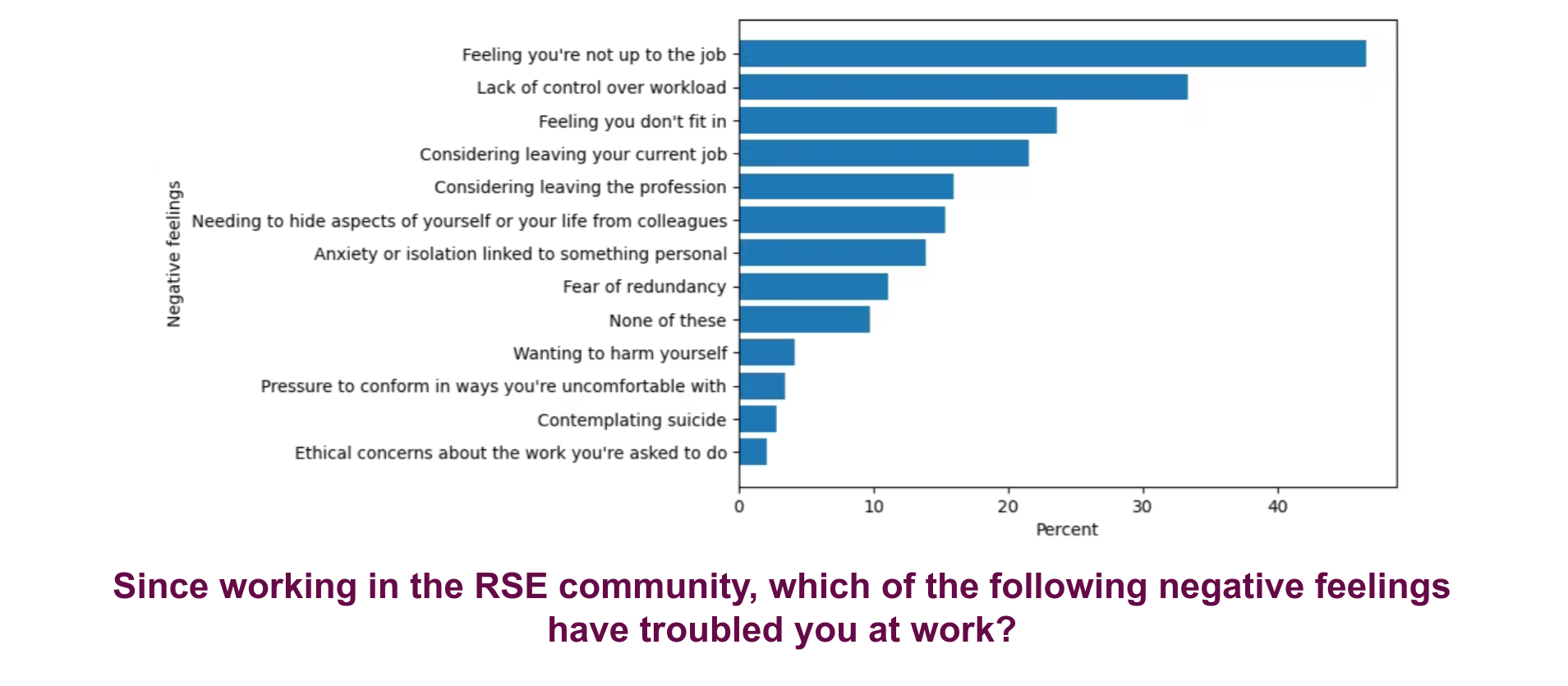Mental health challenges specific to RSEs
Last updated on 2024-05-02 | Edit this page
Overview
Questions
- What are the specific features of research software engineering?
- Which specific mental health challenges the RSE context may bring?
Objectives
- Learn about common mental health challenges in the RSE context.
- Identify challenges you specifically relate to.

Workload
RSEs are often involved in complex projects involving multiple stakeholders, and sometimes in multiple projects at once. Because it is not always clear to our collaborators what our work consist on, it can lead to request for more work than can be achieved in a normal day. This can be especially true for “behind the scenes” work, such as DevOps or Project Management. This very high workload and pressure can ultimately lead to total burn out. Importantly, even if it doesn’t result in straight-up burn out, the constant pressure and feeling of overwhelm negatively impact the RSEs mental health.
Context switching
On top of the practical workload, the multitude of projects, and tasks within the project (meeting with the users, project management, etc.) leads to context switching. Context switching is the fact that, when switching between unrelated tasks or projects, your brain needs time to adjust, be reminded of where you were at, and get started on the new task.
Working alone or forced socialization
Individuals can have very different needs and preferences in terms of social interaction and socialization. When these meets are not met, it can lead to a feeling of distress.
Expectations to keep technical knowledge up to date
The technological landscape is evolving at a very rapid pace, and RSEs are sometimes expected to stay up to date with these evolutions, on top of their day-to-day workload.
Job insecurity
Previously mentioned structural issues issues and stressors are compounded by the general job insecurity in academia and in the tech sector, the intersection of which corresponds to RSE jobs. Permanent position in academia are rare and subject to an intense competition, and the tech has seen massive lay-offs in 2021-2024.
Impostor syndrome
All of this leads to a widespread impostor syndrome in our community. The impostor syndrome is a feeling of inadequacy, and the sense that one doesn’t deserve to be in their current position. The large range of backgrounds in the RSE space can also reinforce this feeling.
Challenge
Take 5 minutes to reflect about which of these challenges you relate to, and which of these stressors are present in your life.
Key Points
- RSEs face a number of specific challenges, which can impact their mental health.
- These negative feelings are common and shared by many RSEs, and are the result of structural, rather than personal, issues.
- Emergency support is available from the Samaritans at: 116-123 or via email: jo@samaritans.org
